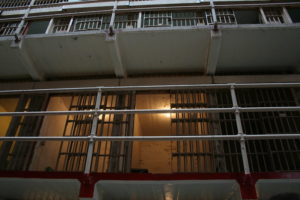Automatic expungement trend gives clean slate to license applicants facing criminal background checks
Obtaining expungement of a criminal record has long involved paying legal fees, filing a court petition, appearing in court, and undergoing a mandatory wait. Historically, studies have found, only about 5 percent of the public have found the process feasible.
Seventy million Americans have a criminal record, typically containing both arrests and convictions. But one in five jobs requires some form of occupational license. With criminal background checks frequently a staple of licensing requirements, the difficulty of expungement has meant that many people with relatively minor offenses have been barred from obtaining a license to practice their occupations.
Enter the Clean Slate model, first developed by the Center for American Progress and Community Legal Services of Philadelphia. These progressive organizations developed a Clean Slate Toolkit in 2018 and gained support from conservative groups seeking to eliminate as many licensing entry restrictions as possible. The bipartisan initiative has been remarkably successful in winning passage of expungement laws.
“Almost every state now has at least some law aimed at limiting record-based discrimination in employment or licensure, or both,” says a new report, “The Many Roads to Reintegration,” by the Collateral Consequences Resource Center (CCRC), which conducts a Restoration of Rights project. CCRC says that states are increasingly restricting the power of occupational licensing agencies to reject applicants with criminal records based upon factors not directly related to their qualifications.
Automatic expungement or sealing of some convictions is now the law in eight states, CCRC reports: California (some misdemeanors and low-level felonies; marijuana offenses); Illinois (some marijuana offenses); New Jersey (some misdemeanors, low-level felonies); Pennsylvania (several misdemeanors); New York (minor marijuana offenses); South Dakota (minor misdemeanors); Utah (some misdemeanors); and Virginia (minor marijuana offenses). In recent months, several other state legislative houses have passed Clean Slate laws, including Michigan, Connecticut, Washington, and Louisiana.
The effects of automatic expungement can be striking. As of the end of June, one year after Pennsylvania’s Clean Slate Act took effect, nearly 35 million criminal cases in the state have been sealed through an automatic process that occurs after the person has remained crime-free for a certain period of time. More than 1 million Pennsylvanians have thus been relieved of the stigma of a criminal record when applying for a job, housing, or an occupational license.
CCRC’s 50-state comparison of laws on expunging, sealing, or setting aside convictions is available at https://ccresourcecenter.org/state-restoration-profiles/50-state-comparisonjudicial-expungement-sealing-and-set-aside/


